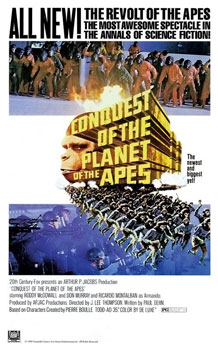
Conquest of the Planet of the Apes is a 1972 American science fiction film directed by J. Lee Thompson and written by Paul Dehn. The film is the sequel to Escape from the Planet of the Apes (1971) and the fourth installment in the original Planet of the Apes film series. It stars Roddy McDowall, Don Murray, Ricardo Montalbán, Natalie Trundy, and Hari Rhodes. In the film, set in a world that has embraced ape slavery, Caesar (McDowall), the son of the late simians Cornelius and Zira, surfaces out of hiding from the authorities and prepares for a rebellion against humanity.

British Racing Motors (BRM) was a British Formula One motor racing team. Founded in 1945 and based in the market town of Bourne in Lincolnshire, it participated from 1951 to 1977, competing in 197 grands prix and winning seventeen. BRM won the constructors' title in 1962 when its driver Graham Hill became world champion. In 1963, 1964, 1965 and 1971, BRM came second in the constructors' competition.

The Pleasure Seekers is a 1964 American musical romantic comedy film directed by Jean Negulesco from a screenplay by Edith Sommer, based on the 1952 novel Coins in the Fountain by John H. Secondari. The film stars Ann-Margret, Tony Franciosa, Carol Lynley, Gardner McKay, and Pamela Tiffin, with Gene Tierney and Brian Keith. Ann-Margret sings four songs composed by Sammy Cahn and Jimmy Van Heusen.

David George MacDonald was an American racing driver noted for his successes driving Corvettes and Shelby Cobras in the early 1960s. He was killed in the 1964 Indianapolis 500, along with fellow driver Eddie Sachs.

The Chrysler Turbine Car is an experimental two-door hardtop coupe powered by a turbine engine and was manufactured by Chrysler from 1963 to 1964. Italian design studio Carrozzeria Ghia constructed the bodywork, and Chrysler completed the final assembly in Detroit. A total of 55 cars were manufactured: five prototypes and a limited run of fifty cars for a public user program. All have a signature metallic paint named "turbine bronze", roughly the color of root beer. The car was styled by Elwood Engel and Chrysler studios. They featured power brakes, power steering, and a TorqueFlite transmission.
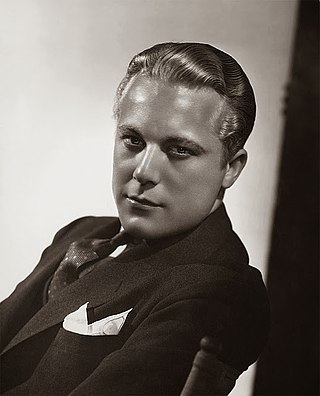
Gene Raymond was an American film, television, and stage actor of the 1930s and 1940s. In addition to acting, Raymond was also a singer, composer, screenwriter, director, producer, and decorated military pilot.
Everett "Cotton" Owens was a NASCAR driver. For five straight years (1957–61), Owens captured at least one Grand National Series win. Owens was known as the "King of the Modifieds" for his successes in modified stock car racing in the 1950s.
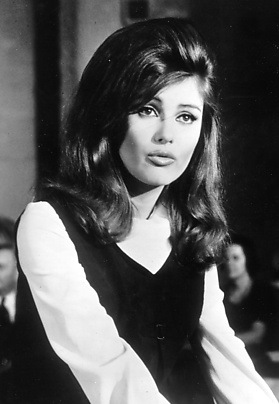
Pamela Tiffin Wonso was an American film and television actress.
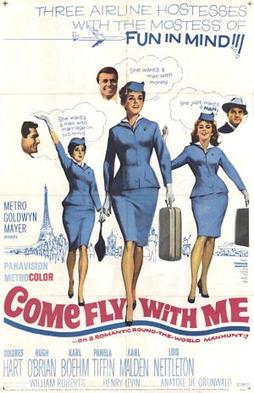
Come Fly with Me is a 1963 British Jet Age romantic comedy film directed by Henry Levin and released by MGM. Featuring an ensemble cast of Dolores Hart, Hugh O'Brian, Karlheinz Böhm, Pamela Tiffin, Karl Malden, and Lois Nettleton, it is based on Bernard Glemser's 1960 chick-lit novel Girl on a Wing, which was published again in 1969 under the title The Fly Girls. It follows three young international air hostesses looking for romance and excitement, weaving abundant soap opera elements into its tale of opportunity for glamorous travel and adventures with men that came with being an airline hostess.

The 48th International 500-Mile Sweepstakes was held at the Indianapolis Motor Speedway in Speedway, Indiana on Saturday, May 30, 1964. The race was won by A. J. Foyt, but is primarily remembered for a fiery seven-car accident which resulted in the deaths of racers Eddie Sachs and Dave MacDonald. It is also the last race won by a front-engined "roadster", as all subsequent races have been won by rear-engined, formula-style cars. It was Foyt's second of four Indy 500 victories.

Shelby American, Inc. is an American high performance automobile company founded by driver Carroll Shelby. The Shelby American name has been used by several legally distinct corporations founded by Shelby since his original shop in Venice, California began operation in 1962. The current iteration is a wholly owned subsidiary of Carroll Shelby International, Inc., a holding company formed in 2003. Carroll Shelby International's other wholly owned subsidiary is Carroll Shelby Licensing, which licenses the name and trademarks associated with Shelby to other companies. Shelby American was the first automobile manufacturer in the state of Nevada. Shelby American manufactures component automobiles, including replicas of the small-block and large-block AC Cobras, the Shelby GT350 and the GT500 Super Snake. Since 2005, Shelby American has released new models each year.

William Paul Lundigan was an American film actor. His more than 125 films include Dodge City (1939), The Fighting 69th (1940), The Sea Hawk (1940), Santa Fe Trail (1940), Dishonored Lady (1947), Pinky (1949), Love Nest (1951) with Marilyn Monroe, The House on Telegraph Hill (1951), I'd Climb the Highest Mountain (1951) and Inferno (1953).

State Fair is a 1962 American musical film directed by José Ferrer and starring Pat Boone, Bobby Darin, Ann-Margret, Tom Ewell, Pamela Tiffin and Alice Faye. A remake of the 1933 film State Fair and the 1945 film State Fair, it was considered to be a financially and critically unsuccessful film. Richard Rodgers, whose collaborator Oscar Hammerstein had died in 1960, wrote additional songs, both music and lyrics, for this film adaptation of the 1932 novel by Phil Stong.

The Rover-BRM was a prototype gas turbine-powered racing car, jointly developed in the early 1960s by the British companies Rover and British Racing Motors (BRM). The car is part of the collection at the British Motor Museum.
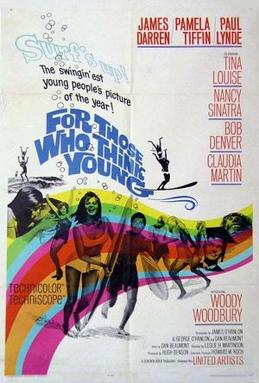
For Those Who Think Young is a 1964 beach party film shot in Techniscope, directed by Leslie H. Martinson and featuring James Darren, Pamela Tiffin, Paul Lynde, Tina Louise, Bob Denver, Nancy Sinatra in her film debut, Robert Middleton, Ellen Burstyn, Claudia Martin and Woody Woodbury.

Guns, Girls and Gangsters is a 1959 American film noir crime film directed by Edward L. Cahn starring Mamie Van Doren, Gerald Mohr, Lee Van Cleef, and Grant Richards.

Hootenanny Hoot is a 1963 folk music musical film directed by Gene Nelson. It stars Peter Breck and Ruta Lee.

13 West Street is a 1962 American neo-noir crime film directed by Philip Leacock and starring Rod Steiger and Alan Ladd, whose own production company produced the film. It is based on the 1957 novel The Tiger Among Us by Leigh Brackett, who called the film "very, very dull."
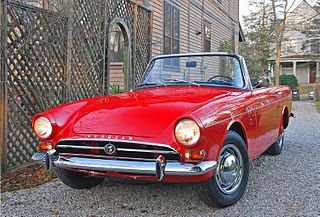
The Sunbeam Tiger is a high-performance V8 version of the British Rootes Group's Sunbeam Alpine roadster, designed in part by American car designer and racing driver Carroll Shelby and produced from 1964 until 1967. Shelby had carried out a similar V8 conversion on the AC Cobra, and hoped to be offered the contract to produce the Tiger at his facility in the United States. Rootes decided instead to contract the assembly work to Jensen at West Bromwich in England, and pay Shelby a royalty on every car produced.
William Wood is an American screenwriter. Along with Mel Goldberg, he wrote for the 1964 film The Lively Set, starring James Darren, Pamela Tiffin, Doug McClure and Joanie Summers. He also wrote for television programs including Mission: Impossible, Cimarron City, Room 222, Here Come the Brides, Ben Casey, The Fugitive, The Mod Squad, Dan August and The Greatest Show on Earth.
















